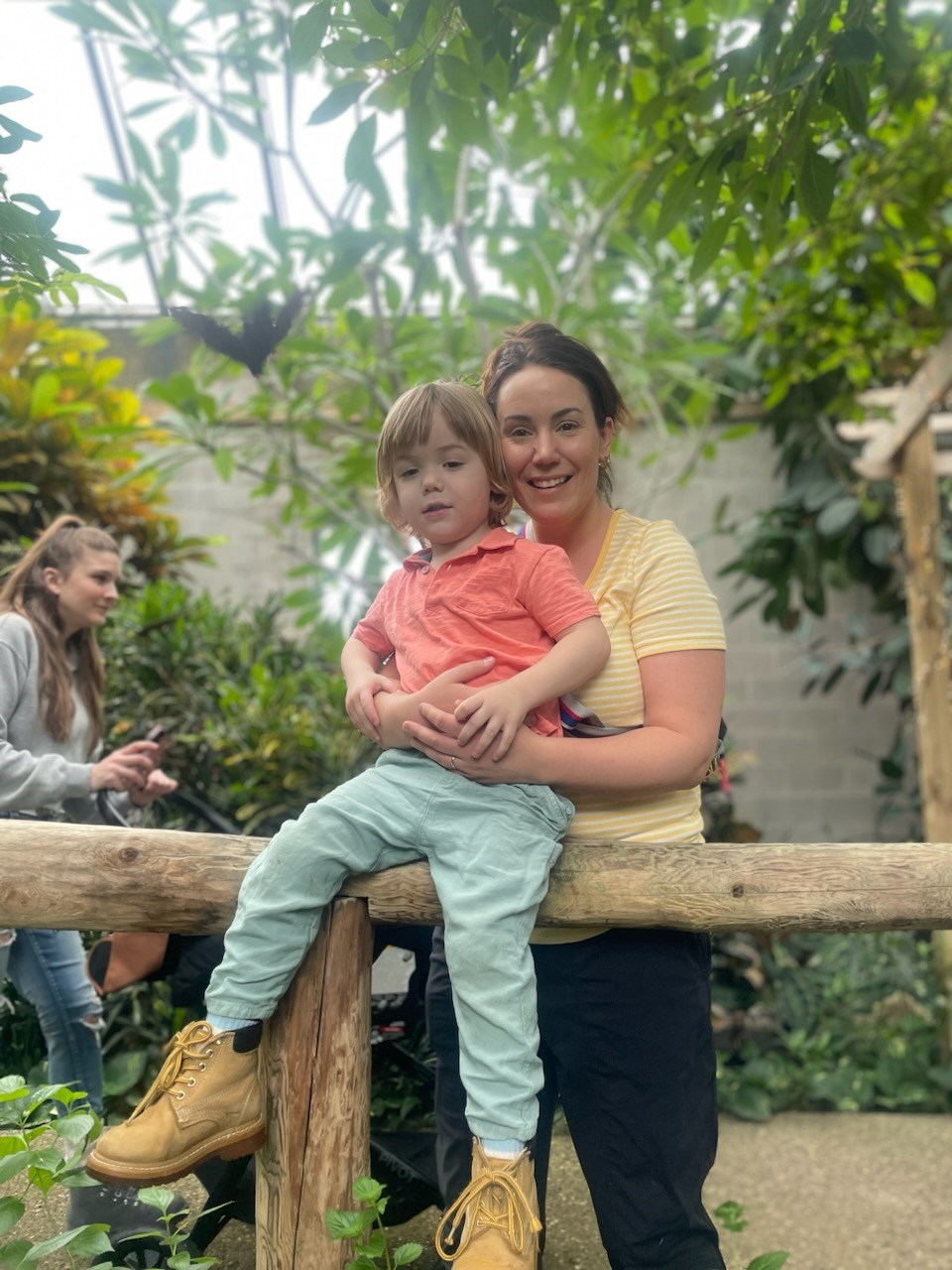MINTO – Sam Greer feels her family has been put into an unfair position of having to choose between a program critical to her son's development or her income.
Greer is a mother of three in Harriston, including three-year-old Maverick who is autistic and non-verbal.
Maverick was recently accepted into the provincially funded Entry to School for Autism Program, a six month program aimed to ease the transition for children with autism spectrum disorder (ASD) who are entering Junior Kindergarten.
The problem is this program is only offered locally in larger cities, in this case at KidsAbility in Guelph. This would require more than an hour drive each way for Greer and runs 1:30 p.m. to 4 p.m. during her workday.
“I really want Maverick to go to school, obviously I want him to have every opportunity because life is going to hit him hard, he’s non-verbal, he has all kinds of other issues with communication,” Greer said.
“How am I going to get him there? I am a licensed childcare provider for the County of Wellington, I have to make a living.”
Greer didn’t think anyone would want her for half-day childcare.
Transportation wasn’t offered by KidsAbility to and from Minto and Greer couldn’t find anyone else.
Out of options, Greer said she quit her job, taking the hit to the wallet and time away from her other children.
She launched a petition calling for equal geographic access to publicly funded autism school entry programs in Wellington County. Greer would like to see a more centrally located program and transportation offered in the meantime.
“I just don’t see how they can offer this to all of Wellington but have these barriers, these transportation barriers for these kids to have to go through,” Greer said.
The northern Wellington County communities are generally lower-income, Greer noted, and she said although it will hurt financially her family is lucky to still have her husband’s income.
“We’re a rural farming community, most people are living paycheque to paycheque,” Greer said. “They’re not going to be able to just up and quit their jobs and shuttle their children to Guelph, Waterloo or Kitchener.”
This is a situation Alina Cameron, president of the Ontario Autism Coalition, is all too familiar with the situation, as someone who lives in a small town outside of Thunder Bay.
“We often say that northern, rural and remote communities are an early warning system for systemic issues that we see within the programs we use for accessing therapy, supports and services for our children and that includes education,” Cameron said.
She's even heard of families uprooting their lives and moving to bigger cities to have easier access to programs. Greer said she wouldn't move her family as their support system is in Minto and her family moved to her husband's home town to avoid big city home prices for their family of five.
Cameron said part of the issue preventing expansion is the slow roll out of the Ontario Autism Program over the past five to six years.
“During that time we’ve lost a lot of specialized capacity, the people who work with our children are professionals with very specific skill sets,” Cameron said. “If children aren’t coming through the door, providers can’t keep the lights on and continue providing services.”
Jennifer Foster, CEO of KidsAbility, directed EloraFergusToday to the Ministry of Children, Community and Social Services (MCCSS) when asked for an interview or comment.
Data obtained by The Trillium, an EloraFergusToday sister site covering Queen’s Park, through a freedom-of-information request shows 67,306 children were registered for the Ontario Autism Program as of Dec. 31 and 4,785 children and youth used the Entry to School program as of Dec. 31.
“Uptake and participation in the Entry to School program has continued to increase this year, with record registration to support children who will be entering school in September 2024,” an unnamed MCCSS spokesperson said via email.
The ministry spokesperson did not directly answer if there was a plan to expand the Entry to School program to Wellington County but pointed to a July 2021 announcement of the Ontario Autism Program Capacity Action Plan.
“The Workforce Capacity Fund is a key initiative under the plan that provides time-limited grant funding to children’s service providers and community organizations for initiatives that build clinical capacity in the Ontario Autism Program, with a priority focus on northern, rural, remote, Indigenous and Francophone populations,” the spokesperson wrote.
Cameron said the hope is to see significant increase to the Ontario Autism Program’s funding through Ontario’s 2024 budget, previously at $660 million. The budget, released on Tuesday, stated it will increase by $120 million in 2024-2025.
Greer can only hope for the best for Maverick, who she described as a really bright child who could count to 100 before he was three and can communicate in his own ways.
“I just know he can move mountains but without the funding to access these schools, without the government investing in their future, we’re unable to unlock the brilliant minds that are behind these kids and this devastating diagnosis,” Greer said.
